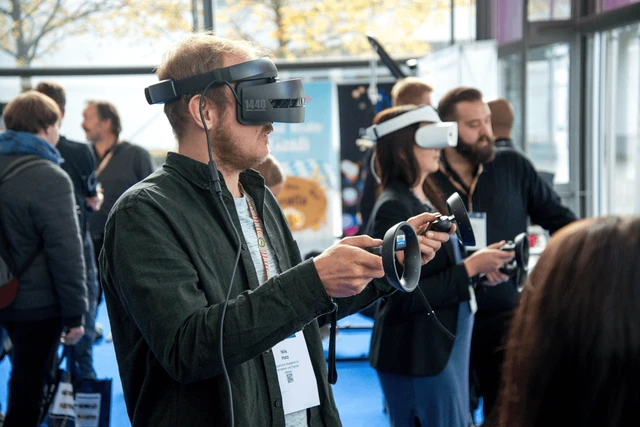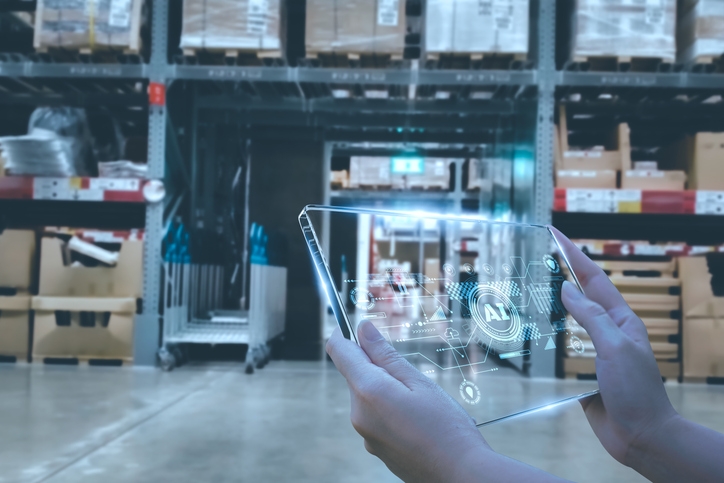Top Event Marketing Trends to Elevate Your Strategy in 2025
Discover the key event marketing trends shaping 2025. Elevate your strategy and stay ahead in a competitive landscape. Read more to enhance your approach!

Want to stay ahead in event marketing for 2025? This article highlights essential event marketing trends you need to know. From AI-driven personalization to hybrid events and sustainability, learn what will shape successful events.
Key Takeaways
- Personalization is crucial for event marketing success in 2025, driven by AI tools to create tailored attendee experiences.
- Hybrid events are transforming the industry by providing flexible attendance options, allowing for diverse, inclusive audiences.
- Data-driven strategies will define event marketing in 2025, helping to personalize experiences, measure ROI, and enhance overall effectiveness.
Personalization at Scale
In the world of event marketing, personalization is no longer a luxury; it’s a necessity. Personalization enhances attendee engagement and brand affinity, creating memorable experiences. Leading platforms like Netflix, Amazon, and Spotify have set the bar high by using data to meet user preferences.
As we move further into 2025, the rise of AI tools in event marketing is facilitating enhanced personalization, allowing for a more personal and authentic approach alongside analytical strategies. This mix of technology and human touch is key for event marketing success in 2025.
How AI Enhances Personalization
The projected market value of customer experience personalization software exceeding $9 billion underscores the significant investment in AI-driven personalization. By 2025, attendees will favor event marketing that adopts a more personal, human approach, enabled by AI.
AI improves personalization by matching attendees based on shared interests and needs, creating tailored communications through emails, website content, and notifications driven by data insights. AI can handle many marketing tasks more effectively than humans, reducing errors and enhancing the attendee experience.
Achieving this level of personalization manually is unrealistic and is vital for deeply understanding your audience.
Partnering with Venues for Personalized Experiences
Collaboration with venues is pivotal for event planners aiming to provide tailored services that meet individual attendee preferences. Collaborating with venues enables personalized experiences for in-person, hybrid, or virtual events. This collaboration can enhance attendee engagement and create memorable experiences by aligning the event environment with personalized services.
As the event industry evolves, leveraging these partnerships helps many event marketers, event planners, and organizers stay ahead of industry trends and deliver unique, immersive experiences. An event marketer can play a crucial role in this process.
The Rise of Hybrid Events
Hybrid events are transforming the events industry by combining the best of both physical and virtual experiences. This event trend is becoming a key aspect of event marketing for 2025 and beyond, reflecting current event trends. A hybrid event provides attendees the flexibility to choose how they want to experience the event, whether in person events or online, thus breaking down geographical barriers and amplifying audience reach.
This not only increases attendance but also enhances accessibility, ensuring that no potential attendee is left out. With the growing demand for hybrid events, planners need to adapt their strategies for both in-person and virtual participants.
Benefits of Hybrid Events
One of the major advantages of hybrid events includes:
- The ability to join from anywhere, removing geographical barriers and allowing for a more diverse audience.
- Flexible attendance options that enhance participant satisfaction and engagement.
- Catering to diverse preferences.
This dual-format approach not only broadens the reach of events but also provides a more comprehensive and inclusive experience, making hybrid events a significant trend in the event marketing strategy for 2025, especially in various event formats.
Challenges and Solutions for Hybrid Events
Despite their many benefits, hybrid events present unique challenges. Managing both in-person and virtual meetings components simultaneously can complicate logistics and increase costs. Ensuring a robust technology infrastructure is essential to prevent technical difficulties and maintain smooth operation.
Additionally, maintaining audience engagement across both formats is crucial. Solutions include investing in reliable technology, thorough planning, and tailored engagement strategies for both in-person and virtual participants. Addressing these challenges helps ensure successful and seamless hybrid events.
Leveraging Data for Event Success
Data is the backbone of successful event marketing in 2025. Key aspects include:
- Collecting and analyzing attendee first party data and event data to drive personalized experiences that align with audience needs and expectations.
- Using hyper-specific, measurable objectives via data-driven technology to revolutionize event marketing.
- Providing analytics that inform decision-making and measure success.
An effective strategy involves clear goals, identifying the target audience, conducting target audience research, choosing the right marketing channels, and measuring success through relevant metrics.
Data Collection and Analysis Techniques
Real-time data collection is crucial for understanding attendance patterns and participant engagement. Modern tools offer graphs and real-time suggestions for event analysis, making it easier to gauge attendee satisfaction and areas for improvement.
Post-event surveys should include both quantitative and qualitative responses to provide a comprehensive overview of the event’s success. Examining registration data helps identify periods of highest and lowest ticket sales, enabling better marketing strategies for future events and analyzing post event data.
Companies often summarize events in blog posts to enhance visibility and provide accessible highlights.
Using Data to Measure ROI
Measuring event ROI is a critical aspect of event marketing. The most common objectives include acquiring sales, leads, and customer conversions. Establishing KPIs during planning helps measure indicators like registration and attendance rates.
Comparing metrics like attendee engagement and session participation provides insights into event performance. Evaluating leads by estimating average event revenue from similar leads against event costs is essential for assessing ROI. Turning data into actionable narratives demonstrates event ROI to stakeholders and prepares for future events.
Sustainable Event Practices
Sustainability is no longer just a buzzword; it’s a critical aspect of event planning in 2025. Values-based marketing appeals to consumer values and ethics, making it essential for companies to integrate sustainability into their event practices. With 51% of respondents in 2022 indicating that environmental sustainability was more important to them, its significance continues to grow.
Sustainable practices reduce environmental impact, enhance brand image, and align with consumer values.
Implementing Sustainable Practices
Organizers can enhance sustainability by:
- Choosing green venues
- Incorporating energy-efficient solutions like LED lighting
- Adopting low-waste designs
- Using recycled materials
- Using ENERGY STAR® certified appliances to significantly reduce the carbon footprint of events.
Focusing on eco-friendly solutions and reducing waste creates a positive impact and aligns with the growing emphasis on environmental sustainability in event planning.
Benefits of Sustainable Events
Sustainable events positively influence brand image by aligning with consumer values and attracting like-minded sponsors and attendees. With 58% of customers preferring brands that reflect their values, showcasing green credentials is crucial to build brand awareness for successful events.
Engaging with vendors to provide reusable swag not only boosts attendee satisfaction but also supports sustainability initiatives. These benefits make sustainability a key trend in event marketing for 2025.
Immersive Technology in Event Marketing
Immersive technology reshapes the events industry by creating interactive and engaging experiences. VR and AR are becoming increasingly popular, offering new ways to engage attendees more deeply.
By integrating immersive technology, event planners can create memorable experiences that captivate audiences and enhance overall event outcomes through event technology.
VR and AR Applications in Events
Examples of VR and AR applications in events include HTC’s launch of the Vive XR Suite through a virtual event and Topshop’s use of VR at London Fashion Week. These technologies let attendees experience events in an immersive setting, enhancing engagement.
Wearable AR glasses and other immersive tools offer more participation opportunities than traditional formats. Such applications demonstrate the potential of VR and AR to transform event experiences.
Case Studies of Immersive Technology
The 29 Rooms by Refinery29 event serves as a case study showcasing the power of immersive technology. Described as a physical manifestation of the Refinery29 brand, it incorporates subtle branding through themes that reflect audience interests, ensuring active participation.
Strategic use of immersive technology boosts attendee engagement and creates memorable, emotionally impactful experiences through experiential marketing.
Community Building Through Events
Building a community fosters organic promotion and enhances attendee engagement while supporting local communities. Authentic connections with attendees drive satisfaction and loyalty, making community-building a key trend for 2025.
Creating on-demand events and unique content experiences keeps the audience engaged before, during, and after the main pre event, including the event’s lifecycle of standalone events.
Strategies for Community Engagement
Nurturing trust through personalized connections is key for ongoing engagement with audiences. Strategies like newsletters, webinars, and blog posts maintain community engagement after events. Seeking feedback and listening to responses fosters a stronger connection, making attendees feel valued.
Smaller, exclusive onsite events can help build deeper connections and meaningful conversations among attendees. Encouraging attendee-generated content during attending events enhances community building.
Utilizing Social Media for Community Building
Social media platforms are essential for building community, allowing real-time engagement and interaction among attendees. Facilitating ongoing conversations on social media strengthens community ties and enhances engagement.
Leveraging social media keeps the community engaged before, during, and after the event, creating a lasting impact on post event engagement.
Content Repurposing for Maximum Impact
Repurposing event content extends its shelf life and provides a steady stream of useful material. This saves time and resources, allowing marketing teams to maximize engagement across multiple channels.
Event and content strategies are interconnected, enabling tailored experiences that captivate the audience long after the event strategy concludes.
Effective Content Repurposing Strategies
Using various content formats, like social media posts, blog articles, and bite-size clips, can maximize engagement. High-quality on-demand content is ideal for repurposing, allowing for continued audience engagement.
Transforming long-form videos into shorter clips caters to viewers who prefer quick content, enhancing reach. These strategies ensure event content has a lasting impact beyond the initial audience.
Examples of Successful Content Repurposing
Adobe’s Experience Makers Live event exemplifies effective content repurposing. Featuring over 35 sessions, this event provided a wealth of content that could be repurposed for ongoing engagement. Such examples demonstrate the power of content repurposing in maintaining audience interest and engagement long after the event has concluded.
The Importance of Accessibility in Events
Accessibility is a top priority for 2025 events, reflecting legal obligations and ethical responsibilities. Failing to make events accessible can exclude a large part of the audience, leading to decreased attendance and satisfaction.
Creating accessible events fulfills legal obligations and fosters a welcoming environment, driving attendance and boosting satisfaction.
Keeping Up with Accessibility Laws
Legislation such as the European Accessibility Act introduces new standards for accessibility that demand compliance from event planners regarding both physical and digital environments. Staying informed about evolving accessibility laws ensures events meet compliance requirements and prevent discrimination.
Event planners, event professionals, event organizers, and event managers must adapt to these regulations to ensure inclusivity and create a positive event experience for all attendees.
Technology's Role in Accessible Events
Technology plays a critical role in making events accessible for all attendees. The integration of AI tools allows for real-time accessibility features, such as live captioning and translation during events, ensuring that all participants can fully engage with the content using event software and the event platform.
Using technology, planners can create inclusive environments that enhance the attendee experience.
Enhanced Attendee Engagement Tactics
Integrating technology in events enhances community interaction and attendee engagement. Technological solutions like live captioning and assistive devices enhance participation for individuals with disabilities.
Attendees prefer quality content and social interactions over long events, highlighting the need for engaging presentations and interactive experiences, as most attendees find innovative strategies essential for keeping them engaged throughout the event lifecycle.
Gamification Techniques
Gamification elements like scavenger hunts and quizzes can significantly boost event excitement and competition. The Docker Dash live video game at DockerCon successfully engaged 5,000 attendees, increasing brand awareness.
Gamifying events, as seen with the I/O Adventure by Google, fosters engagement and encourages attendee interaction, making it a key strategy in event marketing.
Real-Time Engagement Tools
Utilizing tools such as live polls and Q&A sessions in real-time can greatly maintain audience participation during live events. These interactive tools allow attendees to share their opinions and questions instantly, fostering a more dynamic and engaging event atmosphere.
Real-time engagement tools are key for maintaining audience interaction and enhancing the participant experience with innovative tools.
Summary
In summary, the event marketing landscape of 2025 is shaped by trends such as personalization at scale, hybrid events, data-driven strategies, sustainability, immersive technologies, community building, content repurposing, accessibility, and enhanced engagement tactics. By staying updated with these trends, event planners and marketers can create memorable experiences that resonate with their audiences and drive success. Embracing these trends and integrating them into your event marketing strategy will not only keep you competitive but also ensure that your events are impactful and engaging.
Frequently Asked Questions
How can AI enhance personalization in event marketing?
AI enhances personalization in event marketing by analyzing attendee data to tailor communications and match individuals based on shared interests, ultimately delivering a more engaging and relevant experience.
What are the benefits of hybrid events?
Hybrid events provide the advantage of accessibility for attendees regardless of location, fostering greater engagement and satisfaction through flexible participation options.
How can data be used to measure the ROI of events?
To effectively measure the ROI of events, establish KPIs and analyze metrics like attendee engagement and session participation, while assessing leads against average revenue versus event costs. This approach will provide a clear view of the event's financial value.
Why is sustainability important in event planning?
Sustainability is crucial in event planning as it resonates with consumer values, elevates brand image, and draws in like-minded sponsors and attendees. Implementing sustainable practices also minimizes environmental impact, reinforcing a commitment to eco-friendly initiatives.
What role does technology play in making events accessible?
Technology is essential for making events accessible, as it offers features like live captioning and translation, enabling all participants to fully engage and fostering inclusivity.
More Event Management












